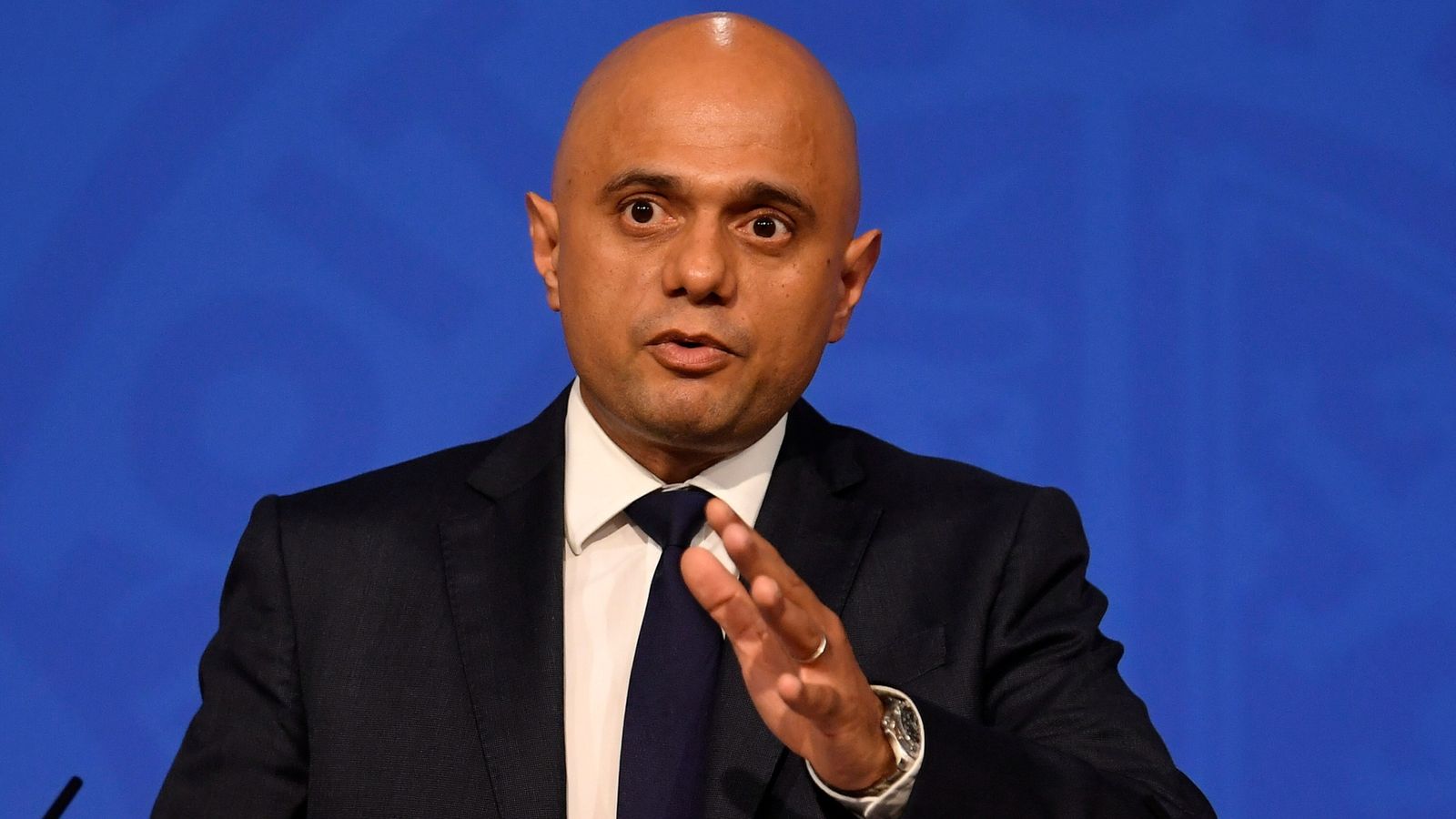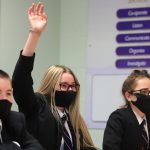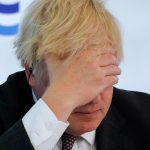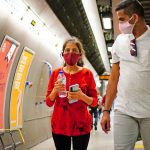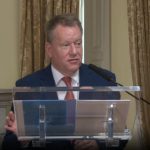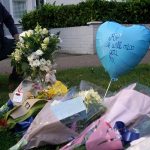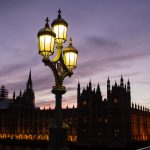COVID cases could hit 100,000 a day, Health Secretary Sajid Javid has warned – but he confirmed England will not yet move to the government’s Plan B for dealing with pressures on hospitals this winter.
Speaking at a Downing Street news conference on Wednesday, Mr Javid cautioned that the coronavirus pandemic “is not over”.
“Thanks to the vaccination programme, the link between hospitalisations and deaths has significantly weakened, but it’s not broken,” the health secretary said.
“So we must all remember that this virus will be with us for the long term and remains a threat to our loved ones, and a threat to the progress that we’ve made in getting our nation closer to normal life.”
COVID news live as UK seeing 1,000 coronavirus hospitalisations – latest updates
On Wednesday, the UK recorded 49,139 new COVID-19 cases – the eighth day in a row that infections have been above 40,000 – and 179 deaths within 28 days of a positive test.
And on Tuesday, the UK recorded 223 deaths within 28 days of a positive COVID test – the highest daily number since early March.
COVID-19: UK strikes deals for two antiviral drugs to help combat coronavirus surge this winter
COVID-19: UK records another 49,139 cases and 179 virus-related deaths
COVID-19: Children as young as five to get vaccine within weeks, White House announces
Mr Javid said that current COVID deaths “remain mercifully low” – an assertion later questioned by one SAGE scientist – and the health secretary added he does not believe the current pressures on the NHS are “unsustainable”.
The health secretary previously warned of coronavirus cases reaching 100,000 a day this summer as COVID restrictions were lifted.
Although cases did later rise to a summer peak of around 60,000 in one day, they subsequently began to fall.
However, a recent rise in cases has led to calls for ministers to enact plan B of their autumn and winter COVID response.
Under the government’s plan B for dealing with winter pressures facing the NHS, contingency measures could include the reintroduction of a legal requirement to wear face coverings in some settings; the potential introduction of COVID vaccine passports; and the possible return of the work from home command.
But Mr Javid said he would not yet be reintroducing COVID measures in England.
“We’re looking closely at the data and we won’t be implementing our plan B of contingency measures at this point,” he told the news conference.
“But we’ll be staying vigilant, preparing for all eventualities, while strengthening our vital defences that can help us fight back against this virus.”
Yet the health secretary also urged people to take “little steps” that would make a “big difference”.
These include meeting others outdoors where possible, ensuring good ventilation, wearing masks in crowded spaces and taking lateral flow tests.
Please use Chrome browser for a more accessible video player
“We’ve come so far thanks to the efforts of so many, but with winter ahead, we can’t blow it now,” Mr Javid said.
He also appeared to link the possible reintroduction of COVID measures this winter to the success of the booster jabs programme in the coming weeks.
The health secretary said that getting a top-up vaccination was “not just to save lives, but to keep your freedoms too”.
“Because all of these precious moments that we’ve been able to restore over the past few months – the loved ones we’ve been able to see and the collective experiences we’ve been able to share – they’ve been possible thanks to our vaccination programme and because so many of you came forward when it was your time,” he added.
“If we want to secure these freedoms for the long-term than the best thing we can do is come forward once again when that moment comes.
“After the decisive steps that we’ve taken this year, none of us want to go backwards now.”
Professor Stephen Powis, the national medical director of NHS England, said the health service was “very, very busy indeed” but added there was no one number of COVID admissions to hospitals that would trigger fresh interventions.
“What’s happening in one part of the country might not be happening in another part of the country,” he told the news conference.
“That’s been typical of the pandemic over the last 18 months and it’s possible that we will see that variation again.”
Dr Jenny Harries, the chief executive of the UK Health Security Agency, said the country was going into winter with a “really high level” of COVID cases.
“What we can see is that the cases now are almost as high as they were in July and actually not far off where they were last winter,” she said.
“What we are not seeing is that dip down again at the other side of the peak and that is really important because we are kicking off the winter at a really high level of cases.
“Fortunately that is not currently working through into serious disease and deaths.”
The health secretary on Wednesday also announced the UK has struck deals for two new coronavirus treatments.
The antiviral drugs, if approved by the medicines regulator, are expected to be given to those most at risk from the virus, helping to reduce the severity of symptoms and ease pressure on the NHS.
Amid mounting concern about rising cases, Matthew Taylor, chief executive of the NHS Confederation which represents health bodies, has warned the country risks “stumbling into a winter crisis”.
And he has called on the government to enact “Plan B” of its strategy for coping with autumn and winter pressures on hospitals “without delay”.
Mr Taylor also called for a “plan C” to be outlined to health leaders, should the measures in Plan B prove to be “insufficient”.
However, speaking to Sky News earlier on Wednesday, Business Secretary Kwasi Kwarteng insisted there would not be another national lockdown.
